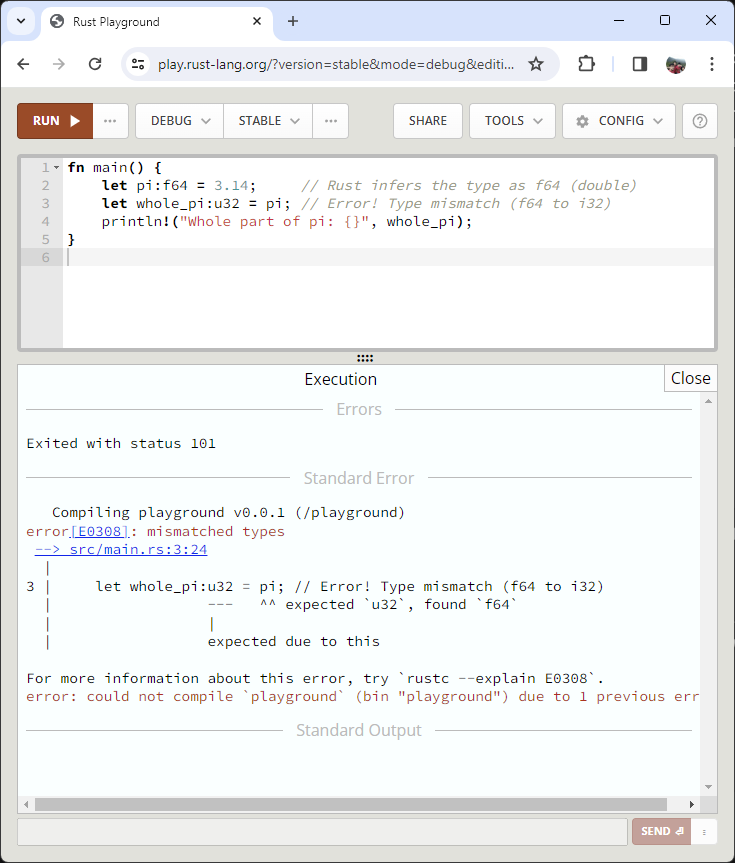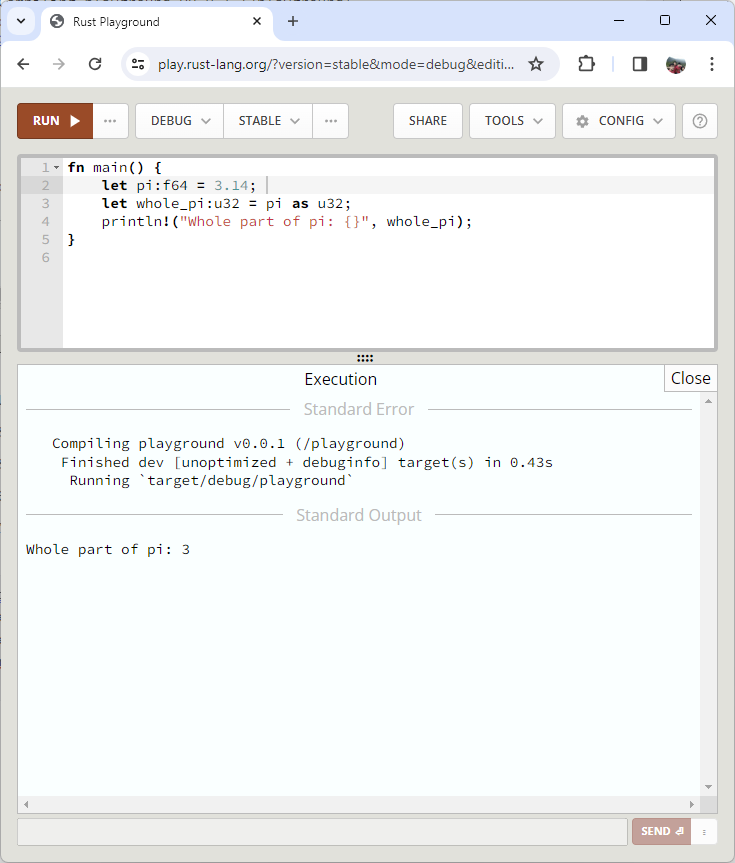Day 7: Rust hate Implicit

Welcome back fellow Rustaceans 🦀!!
In the last article, we took a look at the nitty-gritty details of variables in Rust. We missed one more detail, the type conversion!! Today, we're going to have a look at type conversions in Rust and how they differ from C.
Rust and C have quite different philosophies when it comes to how they handle type conversions. C is quite permissive, often performing conversions between numeric types automatically, even if it might lead to unexpected results. Rust, on the other hand, prioritizes safety and predictability, requiring developers to be explicit about type conversions.
Let's take a look at a simple C example:
#include <stdio.h>
int main() {
double pi = 3.14;
int whole_pi = pi; // Implicit conversion from double to int
printf("Whole part of pi: %d\n", whole_pi); // Output: 3
}In this code, we assign a double value (3.14) to an int variable (whole_pi). C happily performs the conversion, silently truncating (cutting off) the decimal part. This implicit conversion might seem convenient, but it can hide potential issues. What if the loss of precision matters in later calculations?

Let's see what happens when we try the same type of code in Rust.
fn main() {
let pi:f64 = 3.14; // Rust infers the type as f64 (double)
let whole_pi:u32 = pi; // Error! Type mismatch (f64 to i32)
println!("Whole part of pi: {}", whole_pi);
}

The Rust compiler won't let this slide. It complains about a type mismatch because it refuses to implicitly convert from a floating-point type to an integer. While Rust prefers explicit type conversions, it provides the as operator for those intentional changes. The as operator offers a controlled way to convert between compatible numeric types. To make this work, you need to be explicit:
fn main() {
let pi:f64 = 3.14;
let whole_pi:u32 = pi as u32;
println!("Whole part of pi: {}", whole_pi);
}

Rust prioritizes safety, clarity, and developer control. It avoids implicit conversions for several reasons. First, implicit conversions can hide subtle bugs, particularly when data precision is lost or values change unexpectedly. By making conversions explicit, Rust forces you to confront these potential problems head-on. Second, explicit conversions enhance code readability by clearly signifying where type changes are happening and what your intentions are.
Conclusion
Okay, so today's lesson was a bit short and sweet. There's a whole lot more to explore with type conversions in Rust (from and into traits), but we'll dive deeper into that later as we learn more advanced concepts. For our next article, let's go back to the basics and talk about memory types and how programs use memory while they run.


Discussion